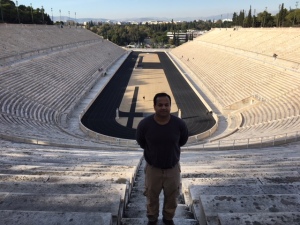A couple of months ago, I attended a seminar hosted by MIT Enterprise Forum in Cambridge, Massachusetts on “The eSports, Gaming and Blockchain Technology Revolution,” sponsored by the law firm of Hamilton, Brook, Smith and Reynolds. My prior limited knowledge on the subject matter, enabled me to takeaway that eSports is another means to amplify the sport of squash in a crowded sports and entertainment market with short-attention spans from fans, viewers and sponsors. Though, squash was not selected for inclusion in the 2020 Olympics in Tokyo, the door remains open for the World Squash Federation to make its bid for the 2024 Olympics in Paris and failing that the 2028 Olympics in Los Angeles.
Over a 26-year span of immersing myself in the global squash community through various roles as an amateur player, volunteer, coach and administrator, I, along with the more than 20 million squash players worldwide, wish to see the sport of squash designated an Olympic sport by the International Olympic Committee. Many (including non-squash players) consider squash to be a “true-sport,” unlike “eSports,” which has recently become a multimillion dollar industry attracting major sponsorship. The target customers of eSports are mostly young people, but the industry also has the potential to reach stay-at-home parents, “differently-abled” athletes, career professionals-in-transition and senior citizens with extra time on their hands to participate in leagues and tournaments.
In recent years, the Professional Squash Association has made limited attempts to license squash video games to bolsters its marketing efforts to capture the “eye-balls” of both current and potential squash fans. My prediction for 2019 and beyond is that, if there are any serious technologists, publishers or members of the gaming community, who possess the know-how to develop, market and sell a world-class gaming squash product (without violence as the premise which in the case of squash is a gentleman’s sport) there is a good possibility for a win-win of squash’s inclusion in the Olympic Games as well as developing a profitable eSports business leader. eSports will never be able to replace the skill, athleticism and mental fortitude that the real sport of squash requires but it can help capture the public’s sporting imagination to expand squash’s audience.










